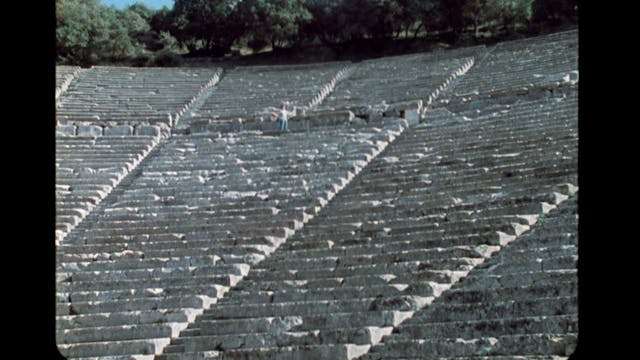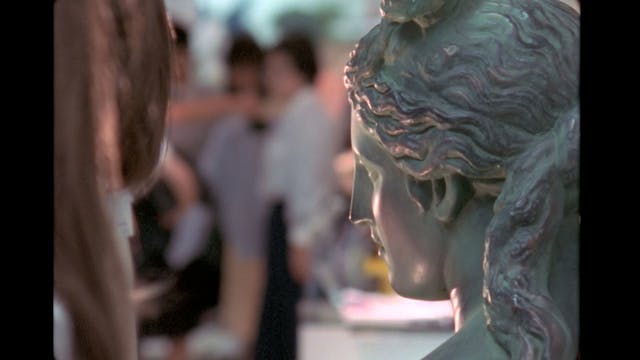The Owl's Legacy: Misogyny, or the Snares of Desire
Chris Marker
•
26m
Directed by Chris Marker • Documentary • 1989 • 26 minutes
“Greek love, Greek eroticism, is a paradigm for us. But it’s something about which we are very hypocritical.” --John Winkler
Classicist Giulia Sissa takes center stage in this episode, which explores desire in ancient Greece (primarily Athens), the social status of women, and the erasure of women by classics scholars.
Homosexual and heterosexual relationships co-existed, each within their own spheres. Any notions of romantic love resided with same-sex relationships, which were also seen as rites of passage for boys initiated into the ways of philosophy. Marriage was a different story—with the father as head of the household, and the mother akin to a child or subject. (Angelique Ionatos says she takes little comfort in the notion that a woman was queen within the household.) While the Greeks celebrated some forms of desire, they also recognized it as an omni-present and potentially powerful source of destruction.
Up Next in Chris Marker
-
The Owl's Legacy: Tragedy, or the Ill...
Directed by Chris Marker • Documentary • 1989 • 26 minutes
“The institution of tragedy plays a fundamental role in a democracy.” --Cornelius Castoriadis
Greek tragedies were originally like TV shows before the age of streaming. They were performed once, and only once says scholar Oswyn Murray. ...
-
The Owl's Legacy: Philosophy, or the ...
Directed by Chris Marker • Documentary • 1989 • 26 minutes
“The owl? What about it?” --Theo Angelopoulos
After a dozen episodes that begin and end with the image of an owl, PHILOSOPHY begins with the owl and its symbolism, and shows us how many of the participants in the series react to the bir...
-
Three Cheers for the Whale
Directed by Chris Marker & Mario Ruspoli • Documentary • 1972 • 17 minutes
Chronicles the history of mankind's relationship with the largest and most majestic of marine mammals, and graphically exposes their slaughter by the fishing industry.
Chris Marker's co-director, Mario Ruspoli (1925-1986...




